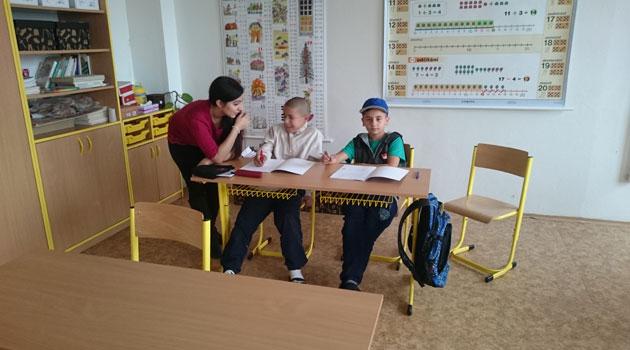Czech Republic: ROMEA helps tutor socially disadvantaged children

From September to December 2014, socially disadvantaged children received regular tutoring at the Pařížská Primary School in Kladno as part of a project called "Education for successful integration". One ambition of the project was to involve Romani college students as tutors.
A total of 15 children in the fourth through the ninth grade participated in the tutoring, focused on the subjects of Czech language and mathematics. "From the start it was important to ascertain the actual needs of the children so we would know what to focus on. Thanks to the fact that we were able to break up the larger group of 15 into smaller groups, we could better dedicate ourselves to their individual needs," said Jitka Votavová of the ROMEA organization, which is implementing the project.
"Even though four months is not so long a time when you can only tutor them for one hour a week, we could see the children’s progress as the term drew to an end. However, this is a long-term endeavor – the most important thing is to master the basics of the curriculum when one is young, because then everything else can build on that," she said.
In December the children also participated in an arts workshop with one of the most remarkable artists on the current Czech and Slovak arts scene, Ladislava Gažiová. Pupils from the Barrandov II – V Remízku Primary School were invited by the Pařížská Primary School to participate in the workshop and to attend the grand opening of their open house and Christmas party.
The aim of having the children create art together was, among other things, for children from different environments to meet each other who would otherwise have a hard time meeting under normal circumstances. "We wanted to make it possible for the children to get to know each other and to establish initial ties, to provide everyone with a direct, personal experience that will contribute toward their developing a critical mindset not based on stereotypes," Votavová said; the project was financed by the Czech Ministry of Education, Youth and Sport as part of the "Support for Romani Community Integration in 2014" subsidy program.